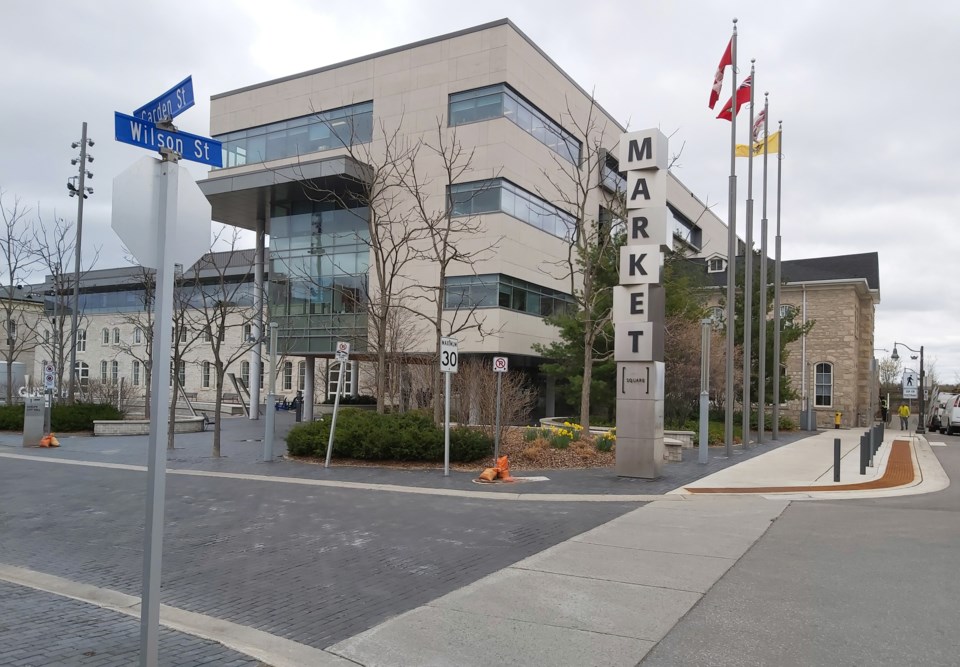I don’t always enjoy these city-sponsored fluffing events meant to boost our collective egos, but when I do, it’s because somebody with renowned and respected credentials repeats something I’ve been saying for years.
“You're green, but you're not as green as you think you are,” said Brent Toderian in a City of Guelph virtual event Thursday evening. “Your actions and your targets will not get you to 63 per cent less emissions per capita by 2030. I'm not even sure they will get you there by 2050. You're not going far enough, fast enough. That's my major conclusion for you.”
I’ve been saying that in this space for years, but I’m just an idiot with a laptop. This guy is called in by cities all over the world to advise them on planning policy and innovative city building.
Among the innovations that Toderian proposed was what I will call a hierarchy of transportation. That when you’re designing a city you should look first at making it easiest for people to walk where they need to go, followed by cycling, public transit, the movement of goods, and then, in last place, the private automobile.
He’s right, and we all know he’s right. We can’t get to our climate goals without reprioritizing how we travel around town, and that means having fewer cars on the road.
So I submitted a question to Toderian to see if he would go further on this matter of abandoning cars. Thursday’s event began with a shout out to the City’s last planning soiree at the Delta Hotel in February 2020 when a roomful of local leaders applauded the idea of going “car-free” and then left the venue in their own private automobiles despite being within a five-minute walk of a dozen transit stops.
“Things like ‘car-free’ frankly sounds really scary to a lot of people, ‘Car free, don't they know I need my car? Are you going to try to force me out of my car?’” Toderian said. “What I say is, you may need your car, or just want your car, but it's in your best interest that the neighbour beside you rides their bike and the neighbour behind you takes transit because if they're all in their cars in front of you, you're not moving as well.”
This is the paradox that Toderian didn’t answer, and I tried to follow it up: Everyone thinks THEY need their car and expects everyone else to leave theirs at home. Everyone sitting in traffic thinks everyone else is the problem, but if you’re sitting in traffic, you are also traffic, especially if you’re sitting in a car by yourself.
It’s strange, isn’t it, how we always hear about the curse of empty buses on our streets, but we don’t talk about the empty cars. This week though, a new argument entered the public transit discourse: Empty trains.
It was a stray comment in a virtual forum earlier this week about the pending environmental assessment of the rail crossing on Edinburgh Road. A motion is coming to council on Monday to have staff pursue the EA, and then explore the possibility of turning that stretch into an overpass or underpass but only if the EA rules out any other possible measure to meet the safety requirements of Metrolinx.
Obviously, some people are pretty concerned, and by concerned, I mean mad. The possibility of an under- or overpass means massive disruption and the appropriation of land in the immediate area, which is why someone might have wanted to lash out at those empty trains. I would just say though that those trains get way less empty the closer you get to Toronto.
But the immediate, visceral negative reaction to this project is part and parcel with the issues Toderian was discussing. It’s hard to move fast and make the immediate and necessary changes to turn Guelph into a city for the 21st century because that visceral negative reaction comes with just about any change.
Now that’s not to say people shouldn’t be anxious or angry about the Edinburgh situation, and residents’ complaints about a lack of outreach from the City may be quite valid, but more trains zooming through Guelph all times of day is not a change we can take lightly, and because we waited so long to make that change, we’re now always in a position of being halfway out of breath and struggling as we run to catch up.
The reason why change is so hard now is because we’ve wasted so much time trying to hold on to the past, and that, I think, was the primary message of Toderian’s talk. We have to get past the past, get past our love of cars, get past our “fear of heights," and get past the notion that there’s a way to hold on to the way Guelph was 10, 20, or 30 years ago. The past is gone, and pretending it’s not is why we feel so stuck right now.
Again, that is not a new sentiment for this column, but now I have actual expertise to back me up. Sadly, I expect the results going forward to be exactly the same.
